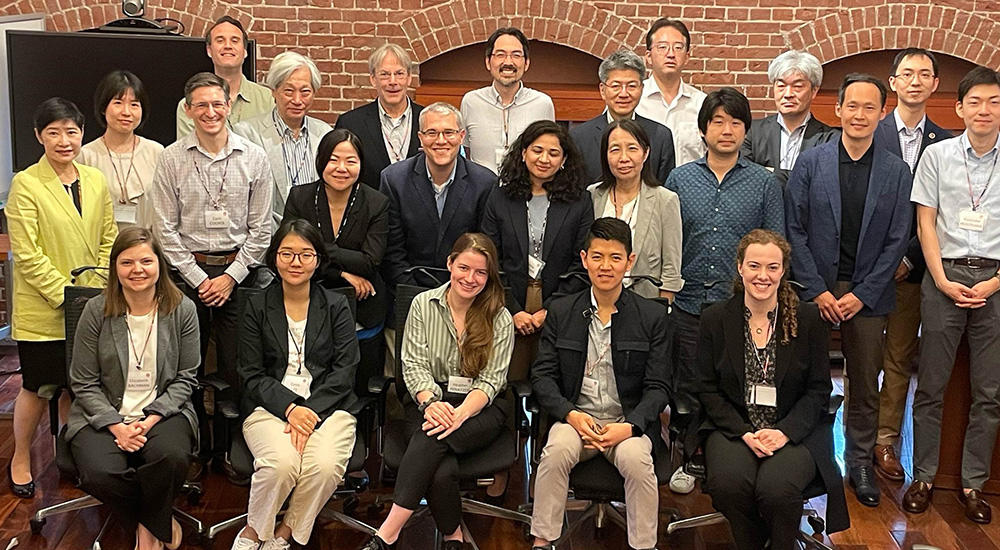Workshop with the University of Tokyo Focuses on the International Relations of East Asia

For the second straight year, students and faculty from the School of Public and International Affairs (SPIA) and the Department of Politics joined those from the University of Tokyo for an international workshop in the Japanese capital. This year’s event focused on international alliances, with a particular emphasis on the heightened geopolitical tension among the United States, China, and other allies.
G. John Ikenberry, the Albert G. Milbank Professor of Politics and International Affairs, organized the event with help from his counterpart abroad, Kiichi Fujiwara, Professor Emeritus of Graduate School for Law and Politics and Visiting Professor of Institute for Future Initiatives.
The meeting is an opportunity for “grad students working in the area of international relations and East Asia to present their research and exchange ideas with their counterparts,” according to Ikenberry.
“The Princeton delegation consisted of young Princeton scholars at various stages — those still developing their dissertations, those just finishing, and others who are now out in the world,” Ikenberry said. “The idea was to build a sort of inter-cohort network, and to create a setting for the older Princeton international relations and East Asia scholars to mentor the younger ones.”
During the two-day event, six Princeton students shared their research, including Lynn Lee, a SPIA Ph.D. candidate, whose presentation was entitled “Risk Versus Threat in Space: Comparing South Korea’s and Japan’s Perception.”
“My dissertation explores how certain U.S. allies have responded to China's technological rise using hedging and balancing theories,” Lee said. “The existing hedging literature is insufficient in measuring different types of hedging behavior or delineating hedging from balancing, especially in today's complex geopolitical situation in which national security encompasses more than military defense.”
The presentation gave Lee a chance to receive feedback from her counterparts, including individuals who helped bring her work to life. “I was particularly fortunate to receive feedback from experts of hedging and space policy whom I cited in my paper,” she said.
The partnership between Princeton and the University of Tokyo is not new. Ikenberry and Fujiwara have been friends and colleagues for over two decades, when they worked together to establish the Five University Collaboration on East Asian Conflict and Cooperation. That partnership — between Princeton, the University of Tokyo, the University of Korea, Peking University, and the National University of Singapore — features international relations professors who have come together for the last 14 years to share their scholarly and policy-oriented work on East Asian security affairs issues.
The pair have now worked together to create a similar consortium to benefit their students.
“The students and others who were part of this workshop came away convinced that research on the core issues of war and peace, sovereignty and interdependence, democracy and autocracy, East and West, economics and security, all continue to be more important than ever,” Ikenberry said.
